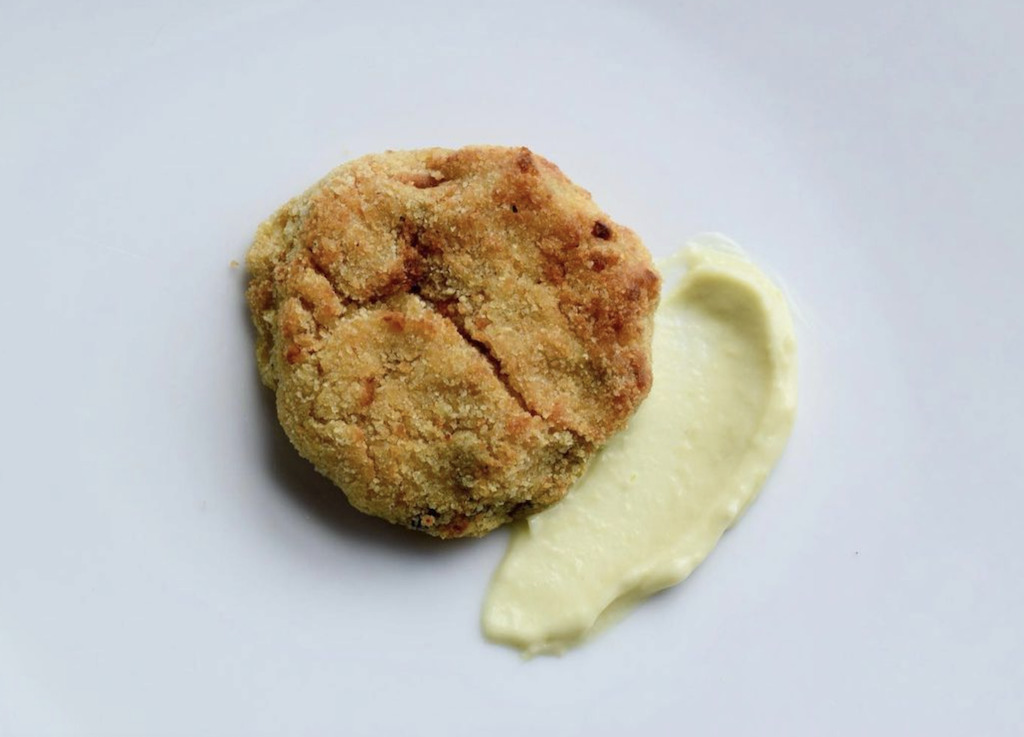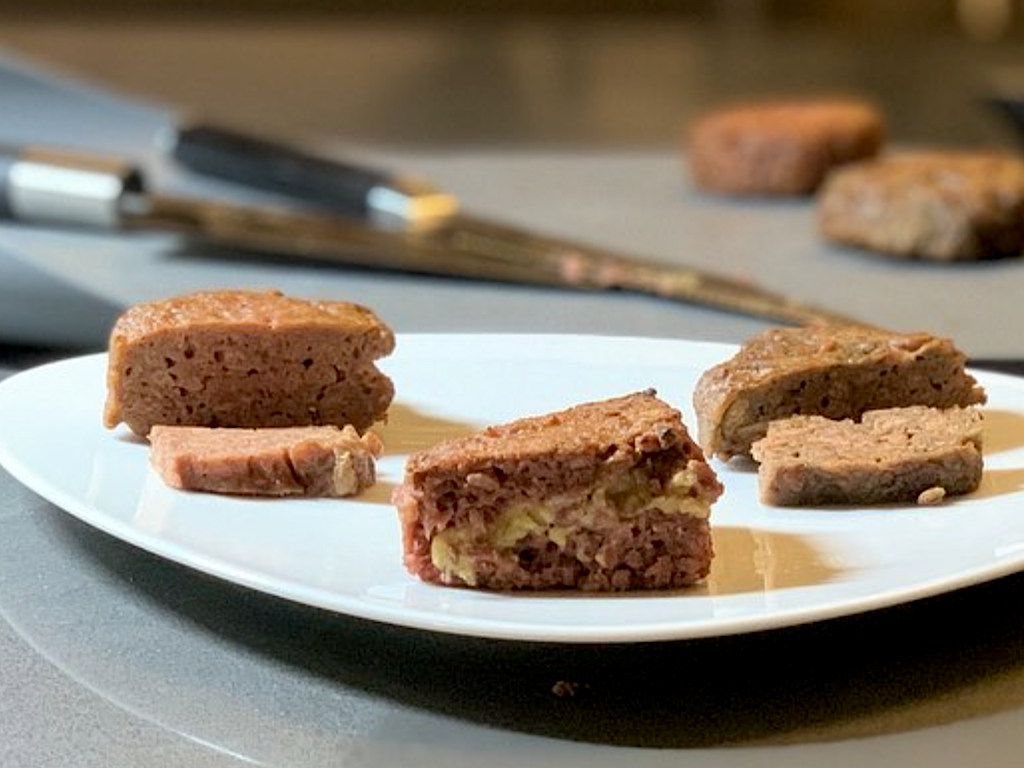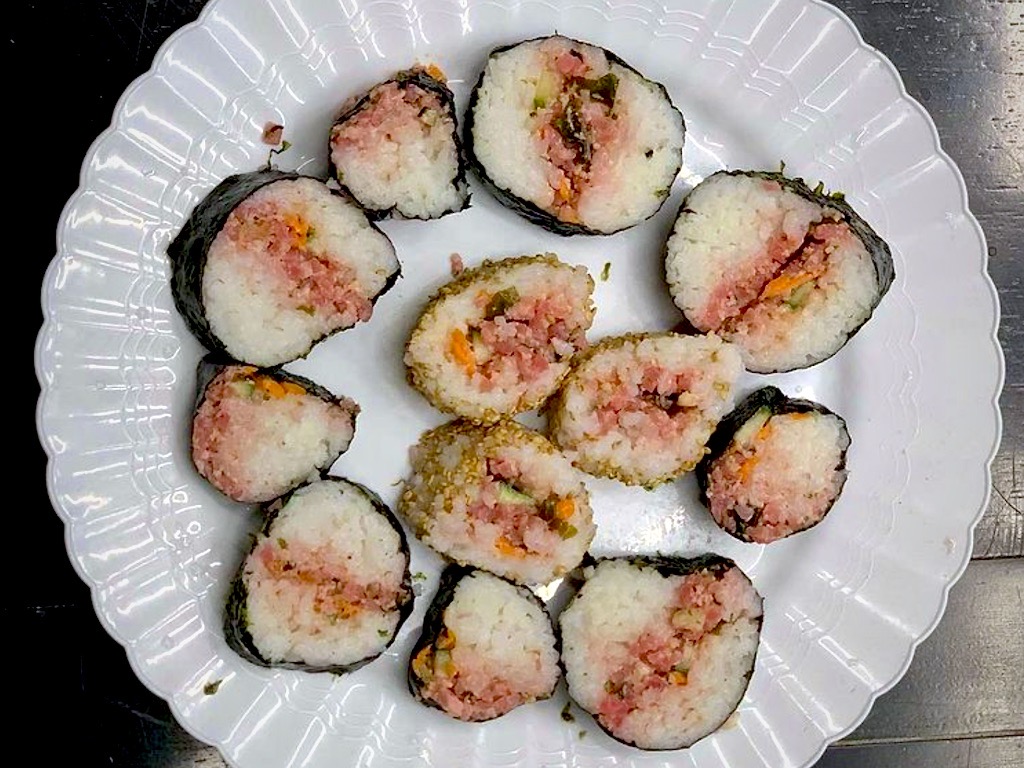3 Mins Read
Back of the Yards Algae Sciences (BYAS), a Chicago-based startup, has developed a “unique seafood flavouring” using its algal heme technology. The flavouring product is designed for plant-based fish, shrimp and other seafood alternatives, enabling “true seafood” taste and umami flavour to elevate the consumer experience.
BYAS has announced the development of a new product, a seafood flavouring that can be incorporated into vegan fish, crustaceans and shellfish alternatives. The flavouring, AHA502, is created using the company’s proprietary algal heme technology and addresses challenges that many plant-based brands face when it comes to replicating the taste and flavour depth of real seafood.
Described as an ingredient that has the “potential to transform the taste and umami consumer experience”, BYAS says the product has no off-notes, no overpowering “fishy odor” and can close the flavour gap between plant and animal-based seafood and ultimately convince more consumers to choose the cruelty-free, sustainable option.

It is only when plant-based tuna, shrimp and other crustaceans taste fantastic, that we will see a long-term adoption of plant-based seafoods.
Leonard Lerer, CEO, BYAS
“We are using our advanced technologies that address real industry challenges: making plant-based seafood a great tasting consumer experience and ensuring that this is done in a sustainable way,” said Leonard Lerer, CEO of the Chicago-based startup.
“It is only when plant-based tuna, shrimp and other crustaceans taste fantastic, that we will see a long-term adoption of plant-based seafoods.”
The flavouring itself is manufactured using organically-grown algae and processed using zero-waste and low-energy methods, based on the company’s original algal heme technology. BYAS debuted its heme earlier this year, an spirulina-based version of the famous additive that Impossible Foods credits for its “bleeding” plant-based patties that can mimic the iron-rich mouthfeel of real cow’s beef.
Unlike Impossible’s soy-based heme, which recently won a legal battle against questions over its safety due to it containing GMOs, BYAS makes its algae heme using a natural extraction process that doesn’t require fermentation or genetic engineering. Being spirulina-based also gives it a nutritional boost, the company says.

This product substantially narrows the taste gap between plant-based and animal-based seafood.
BYAS
Other plant-based ingredient providers like Triton Algae Innovations have also created their own versions of heme. Triton uses a red strain of algae to make its heme, and has debuted a vegan tuna analogue product for retail that beats existing alternatives from a “flavour, texture, and appearance standpoint.”
According to BYAS, their new seafood flavouring has received “rave reviews” in a blind test of seafood alternatives, including vegan crab cakes and spicy tuna sushi.
“This product substantially narrows the taste gap between plant-based and animal-based seafood,” said the company. “[It’s] a hugely important advance in our planet’s struggle to protect dwindling natural resources.”
Tackling unsustainable seafood is one of the biggest challenges of the food system, especially as demand continues to grow at unprecedented levels due to more consumers displacing red meat intake with fish, a trend that is set to plunder ocean fish stocks and exacerbate the environmental and human costs associated with the commercial fishing industry.
Lead image courtesy of BYAS.




